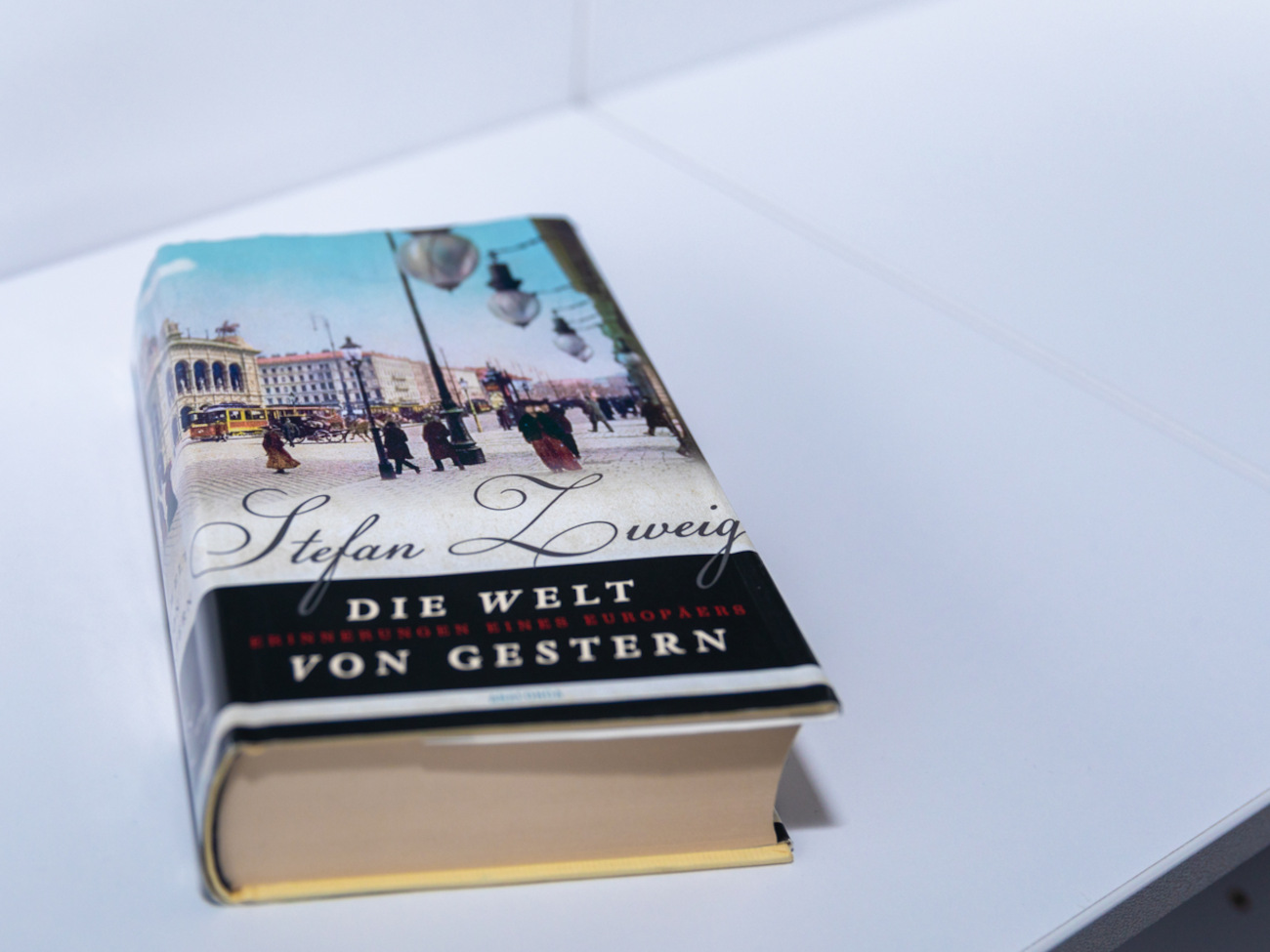
© Matej Meza / Universität Bremen
Book Corner: "The World of Yesterday" by Stefan Zweig
In this series, we will be introducing people on campus and their favorite books. This time: Marc Avila
Marc Avila is a natural scientist through and through. The Director of the Center of Applied Space Technology and Microgravity (ZARM) and Professor of Fluid Mechanics within the Faculty of Production Engineering at the University of Bremen also enjoys reading literature that transports him to other times and worlds and thus gives him completely new ideas. His recommendation: “The World of Yesterday – Memoirs of a European” by Stefan Zweig.
Marc Avila has a special relationship with this book. The native of Catalonia received Stefan Zweig’s “The World of Yesterday” as a gift from his mother last year, shortly before she died at the age of 63. “Due to her illness, she had to spend a lot of time at home and she read the classics,” Avila recalls. During this time, she said that she also discovered author Stefan Zweig.
A World That No Longer Exists
“The world of yesterday” that Zweig describes is Vienna at the end of the 19th and beginning of the 20th century. It is his memoirs, written in exile. “The period described was one of cultural freedom,” Avila says. Zweig, who comes from the Viennese upper middle class and was educated and well traveled, recounts his life. He remembers his youth.
“When I read, I want to learn something. And if that’s conveyed in clear language, that’s the kind of literature I like.”
“It’s very impressive how Stefan Zweig tells it all,” Avila explains. “On the one hand, the author remembers a time that he felt to be golden, but this life is already gone when he writes about it. Everything is falling apart little by little.” That time ended when the shadows of fascism settled over Europe in the 1930s. Zweig went into exile in Brazil, but his memory of that time remains. He began the book around 1939 and it was not published in London and Stockholm until after his suicide in February 1942.
One Hundred Percent European
Marc Avila is so enthusiastic about the autobiography because it is about the European idea. Zweig was, after all, a citizen of the world and traveled a lot. It’s an idea of freedom that Marc Avila, a scholar who works internationally, has internalized. “I feel one hundred percent European,” says the mathematician and physicist, who has lived and worked abroad a great deal. His office is located right next to Bremen’s Drop Tower. Here, scientists from all over the world conduct experiments under short-term weightlessness. The daily communication with international researchers is part of the job.
Simple, Well-Chosen Words
The clear language is another aspect of the book that fascinates Marc Avila. It is written in a compelling, lively style that captivated him as a reader. “Stefan Zweig writes fantastically, not in the sense of long complicated sentences. His formulations are simple, very well-chosen words, to the point. My mother read the Spanish translation of the book but she knew that I liked this way of writing and that I could read the original.”

© Matej Meza / Universität Bremen
How Stable Are Freedom and Democracy?
Stefan Zweig, who studied in Vienna and Berlin, tells of stays in Vienna, Berlin, and Paris, where he lived for a time. Yet it was already becoming apparent how National Socialism was spreading rapidly and hatred of Jews was growing - even at universities. “I learned something about how people thought at the time and how quickly a society can change,” explains Marc Avila.
“I sometimes wonder how stable our democracy is. Our freedom is not a given. We have to stay alert.”
For him, Stefan Zweig’s autobiography is still relevant today. One of the most difficult challenges of our time, he says, is to protect democracy. “We have a well-functioning democracy but I sometimes wonder how stable it is. We cannot expect respect and freedom to remain self-evident in Europe. I’m actually optimistic, but we have to stay alert.”
Fascinated by Jules Verne as a Boy
Marc Avila enjoys reading nonfiction, mystery, and adventure novels. “I used to read an average of one book a month,” he says. “But since having small children, I barely get around to reading.”
As a child, he devoured Jules Verne’s books, he recalls. Later, it was crime novels. Henning Mankell, for example, was one of his favorite authors during his studies. “When I read, I want to learn something. And if that’s conveyed in clear and direct language, that’s the kind of literature I like.”
What he particularly likes about this book: “In his memoirs, Stefan Zweig has not only described his own fate, which is closely connected with his Jewish origins and his profession as a writer. But I also learnt a lot about the attitude to life of the time at the end of the 19th century and the first half of the 20th century.” It is a panorama of that time and a sharp reckoning with the “most stupid epoch in world history,” as Zweig writes. This is probably one of the reasons why the book is one of the most important works of German-language exile literature.
Do you have a book recommendation for other readers?
It can be fiction or non-fiction. Simply send a message to the up2date. editorial team at up2date@uni-bremen.de and we’ll come by for an interview.